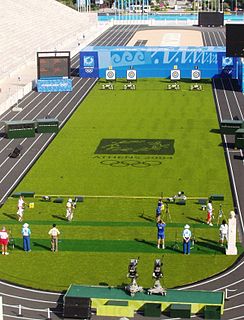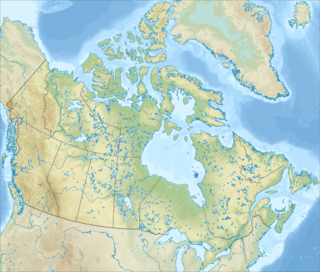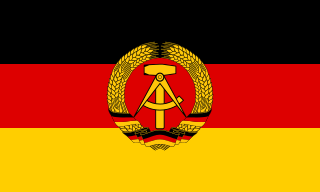
The modern Olympic Games or Olympics are leading international sporting events featuring summer and winter sports competitions in which thousands of athletes from around the world participate in a variety of competitions. The Olympic Games are considered the world's foremost sports competition with more than 200 nations participating. The Olympic Games are held every four years, alternating between the Summer and Winter Games every two years in the four-year period.

The Winter Olympic Games is a major international multi-sport event held once every four years for sports practiced on snow and ice. The first Winter Olympic Games, the 1924 Winter Olympics, were held in Chamonix, France. The modern Olympic Games were inspired by the ancient Olympic Games, which were held in Olympia, Greece, from the 8th century BC to the 4th century AD. Baron Pierre de Coubertin founded the International Olympic Committee (IOC) in 1894, leading to the first modern Summer Olympic Games in Athens, Greece in 1896. The IOC is the governing body of the Olympic Movement, with the Olympic Charter defining its structure and authority.

The 1988 Summer Olympics, officially known as the Games of the XXIV Olympiad, was an international multi-sport event celebrated from 17 September to 2 October 1988 in Seoul, South Korea. 159 nations were represented at the games, by a total of 8,391 athletes: 6,197 men and 2,194 women. 237 events were held and 27,221 volunteers helped to prepare the Olympics. 11,331 media showed the Games all over the world. These were the last Olympic Games for the Soviet Union and East Germany, as both ceased to exist before the next Olympic Games in 1992. The Soviet Union won the medal table, winning 55 gold and 132 total medals.

The 1988 Winter Olympics, officially known as the XV Olympic Winter Games, was a multi-sport event celebrated in and around Calgary, Alberta, Canada, between February 13 and 28, 1988 and were the first Winter Olympics to be held over a whole two week period. The host city was selected in 1981 over Falun, Sweden, and Cortina d'Ampezzo, Italy. Most events took place in Calgary while several skiing events were held in the mountain resorts of Nakiska and Canmore, west of the city.

The 1988 Winter Paralympic Games were the fourth Winter Paralympics, held again in Innsbruck, Austria. These were the last Winter Paralympics to be held in a separate location from the Winter Olympics. Beginning in 1992, the Olympics and the Paralympics were held in the same city or in an adjacent city. These Paralympics were not held at the same Olympic venue in Calgary, Canada, because of financial and recruiting difficulties. A total of 377 athletes from 22 countries took part. The USSR competed for the first and only time. Sit-skiing was introduced as another event in both the Alpine and Nordic skiing competitions. Other sports were biathlon and ice sledge speed racing. Ice sledge speed racer Knut Lundstroem from Norway was the most successful athlete, winning four gold medals in the 100m, 500m, 1000m and 1500m events.

The Olympic Oval in Calgary, Alberta, Canada, is North America's first covered speed skating oval; it was built for the 1988 Winter Olympics and opened 33 years ago on September 27, 1987. Located on the University of Calgary campus, it is the official designated training centre for Speed Skating Canada and the Elite Athlete Pathway.

Olympic sports are contested in the Summer Olympic Games and Winter Olympic Games. The 2016 Summer Olympics included 28 sports, with five additional sports due to be added to the 2020 Summer Olympics program; the 2014 Winter Olympics included seven sports. The number and types of events may change slightly from one Olympiad to another. Each Olympic sport is represented by an international governing body, namely an International Federation (IF). The International Olympic Committee (IOC) establishes a hierarchy of sports, disciplines, and events. According to this hierarchy, each Olympic sport can be subdivided into multiple disciplines, which are often mistaken as distinct sports. Examples include swimming and water polo, which are in fact disciplines of the sport of aquatics, and figure skating and speed skating, which are both disciplines of the sport of ice skating. In turn, disciplines are subdivided into events, for which Olympic medals are awarded. A sport or discipline is included in the Olympic program if the IOC determines it to be widely practiced around the world, that is, the popularity of a given sport or discipline is indicated by the number of countries that compete in it. The IOC's requirements also reflect participation in the Olympic Games – more stringent conditions are applied to men's sports/disciplines and to summer sports/disciplines.
The 1988 Winter Olympics, officially known as the XV Olympic Winter Games, was a winter multi-sport event held in Calgary, Canada, from 13 to 28 February 1988. A total of 1,423 athletes representing 57 National Olympic Committees (NOCs) participated in 46 events from 10 different sports and disciplines. Five new events were contested at these Games—men's and women's Super G in alpine skiing, team events in Nordic combined and ski jumping, and women's 5000 metres in speed skating—and two events returned to the program—men's and women's combined in alpine skiing.

Alpine Skiing at the 1988 Winter Olympics consisted of ten alpine skiing events, held February 15–27 at Nakiska on Mount Allan, a new ski area west of Calgary.
Curling was a demonstration sport at the 1988 Winter Olympics. The venue was the Max Bell Arena in Calgary.

The Nordic combined events have been contested at the Winter Olympic Games since 1924. The first competition involved 18 km cross-country skiing, followed by ski jumping.

East Germany competed at the Winter Olympic Games for the last time at the 1988 Winter Olympics in Calgary, Alberta, Canada. Following German reunification in 1990, a single German team would compete in the 1992 Winter Olympics.

Denmark sent a delegation to compete at the 1988 Winter Olympics in Calgary, Alberta, Canada from 13–28 February 1988. This was Denmark's first appearance at the Winter Olympic Games since the 1968 Winter Olympics 20 years prior, and Calgary was their sixth overall appearance at the winter version of the Olympics. Denmark was represented in Calgary by a single figure skater, Lars Dresler. In the men's singles, he finished in 14th place.

Luxembourg competed at the 1988 Winter Olympics in Calgary, Alberta, Canada from 13–28 February 1988. It had been 52 years since the last time the nation had participated in the Winter Olympic Games, and Calgary was only their third appearance at a Winter Olympics in history. The Luxembourgian delegation consisted of a single alpine skier, the Austrian-born Marc Girardelli. His best performance was 9th in the downhill race, and Luxembourg did not win any medals at these Olympics.

The Jamaican national bobsleigh team represents Jamaica in international bobsledding competitions. The team first gained fame during their debut in the 1988 Winter Olympic Games four-man bobsled in Calgary, Alberta, where they were seen as underdogs as they represented a tropical nation in a winter sport. The team returned to the Winter Olympics in the two-man bobsled in 1992, 1994, 1998, 2002, 2014, and with a women's team for the first time in 2018. The team either failed to qualify or did not have a team during the other Winter Olympics.

Slovenia first participated as an independent nation at the Olympic Games at the 1992 Winter Olympics in Albertville, France, and the country has sent athletes to compete at every Games since then. The Slovenian Olympic Committee was established in 1991 and was recognised by the International Olympic Committee on 5 February 1992.

The United States Virgin Islands first competed at the Olympic Games in 1968, and have since sent athletes to compete at every Summer Olympic Games except in 1980, when they took part in the boycott to the Moscow Games. They have also participated in seven Olympic Winter Games since 1988, having only missed the 2010 Winter Olympics. The only Olympic medal won by a Virgin Islander was a silver by Peter Holmberg in sailing at the 1988 Summer Olympics.

The Olympic Games aired in the United States on the broadcast network ABC during the 1960s to the 1980s. ABC first televised the Winter Olympic Games in 1964, and the Summer Olympic Games in 1968. ABC last televised the Summer Olympics in 1984 and Winter Olympics in 1988.
















